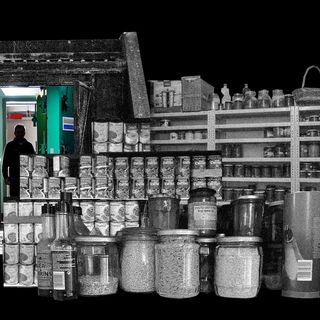In The Buzz Cut, we bring you a round-up of all the weird, controversial, and wonderful stories we’ve been reading all week.
365 Days, a Polish erotic thriller that glorifies rape culture and is truly, truly awful, has become somewhat of a wild card in the last few weeks, enjoying time on Netflix’s top 10 list. Just how did a less-than-mediocre film that “defies nearly every rule of good filmmaking” rise to such popularity? Is it Michael Morrone’s good looks, or something deeper entrenched in the viewers’ desires?
*
The legal team representing Duchess of Sussex Meghan Markle against British tabloid The Mail alleges Markle was left “unprotected” by the monarchy during her pregnancy, even as she was inundated by rumours and false stories that left her frustrated and silenced. Here are the revelations that shed light upon the palace’s view on communication, and how its rigid structure ultimately left Markle unsupported.
*
The ‘French woman,’ especially the ‘Parisienne,’ has always been thought of as a stylish and seductive woman who has a deep knowledge of culture, and who smokes cigarettes and drinks fine wines. Her chic and the impossible standard of beauty and lifestyle she’s often believed to embody has provided fodder for millions of lipstick and perfume ads that glorify the Parisienne as the ultimate woman — an idea being challenged by a new book that seeks to change this perception.
*
India is currently witnessing a homegrown, softcore porn boom playing out on OTT platforms such as AltBalaji, Ullu, and Primeflix. In a society where talking about sex is publicly taboo, and erotic content has often lived on YouTube margins, this newfound money in OTT-fueled erotica might just be one of the most sex-positive things to ever happen in India, if only people talked about it more.
*
The future is queer, is what Gen Z are saying to the world in their rejection of mainstream L, G, B and T identities. A study by Tinder shows Gen Z is increasingly thinking outside of the gender and sexuality box, checking multiple sexual orientations when browsing for partners. With the blurring of the lines between these identities, they’re more free than past queer generations to explore their identities, without the pressure to define any of them.
*
The United States of America has changed for the rest of the world — where once it was seen as a bastion of progress and progressive thinking, now it’s perceived as the pure embodiment of a broken society that is racist and more importantly, pitiful. How did this happen?
*
The coronavirus pandemic has forced employers and employees to consider alternates to the five-day office work week. While the debate between pro- and anti- work-from-home advocates rages, recent surveys show most workers would prefer a middle-ground — workweeks split between the office and home, which preserves office culture, but creates flexibility of work some of the time in a week.
*
Children interrupting their parent — mostly mothers — while they’re on live TV giving an interview has become somewhat of a broadcasting genre in the coronavirus pandemic, prompting different, sometimes bizarre responses from news anchors attempting to fold this new reality into the interview process. This begs the question — what to do when children interrupt TV interviews?
*
People all over the world are dying from the novel coronavirus, but the city of Guayaquil, Ecuador, is facing a problem that lasts longer than a Covid19 death. It doesn’t have the infrastructure to find and identify these dead bodies, leaving the loved ones of the dead stuck in bureaucratic to-and-fros when they should have been left to mourn.




